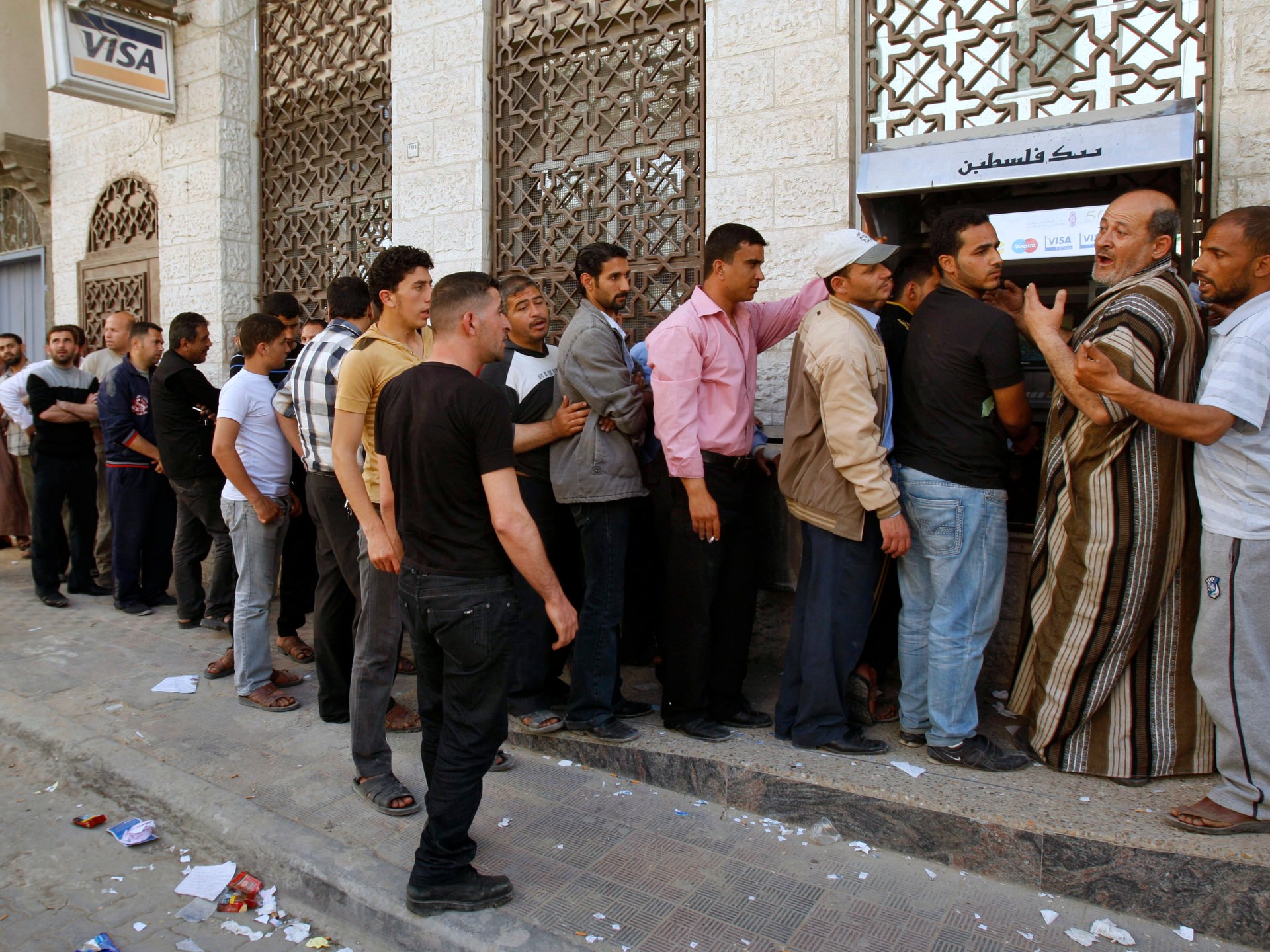Ongoing war and bombing have now destroyed many ATMs operated by banks across the Gaza Strip.
While many bank branches are closed, few active branches are also struggling with lack of liquidity and financial resources and cannot respond to the demand of customers to receive their deposits. For this reason, active banks have closed the doors of most of their branches in Gaza, mainly its north. While these branches operate partially in the center and Rafah in the south, they have been completely closed in the city of Khan Yunis in the south of Gaza, something having aggravated liquidity crisis.
Cash equal to gold
Acute shortage of cash has substantially affected daily life of citizens. For example, Ali Moa'amar, a business owner in Gaza, has failed to withdraw a deposit of $2,176 from his bank in Rafah as ATMs are mostly shut down. He, according to Khalieej Online, is under providers' pressure to pay off his debt, and since he has failed, he could not refill his shelves. He says there is no way to get this amount. Even the exchanges that charge high fees are not able to provide the liquidity needed by the people because people have withdrawn a lot of money during this time.
He explains that banks still active in Rafah and other southern parts of Gaza as well as central regions only operate one ATM which is insufficient to meet needs of customers.
He notes that not receiving his money from the bank adds to his suffering during the war with Israel, especially amid the insane surge in prices and his dire need to receive money to meet his daily needs.
Restrictions have pushed residents of Gaza to use easy pay apps in Gaza to transfer money for purchases, pay off their debts, or provide liquidity. Even in cases where a person has cash in his hand, they sell their cash for 3-10 percent higher than the note value.
The currency shortage has given rise to a dollar black market. Exchangers sell each dollar for 30 shekels or higher, way higher than the price before war.
Israeli troops' stealing from banks and houses
One of the main reasons why Gaza is cash-strapped is confiscation of millions of dollars in local and foreign currencies by the Israeli forces.
The Israeli occupation army has confirmed that since the beginning of the ground invasion of the Gaza Strip on October 27 until last February, it confiscated 220 million shekels ($60 million) from Gaza and 200 million shekels ($54.3 million) from the Bank of Palestine under the pretext of fighting terrorism. In February, the Israeli Maariv newspaper revealed that an Israeli military special force confiscated 200 million shekels ($54.3 million) after raiding the Bank of Palestine branch in Rimal neighborhood in Gaza City.
The Israeli regime, in fact, has not stopped at bombing presidential areas, attacking the civilians, systematically massacring the children, and stealing body organs of the bodies, but also it steals cash and assets of banks and houses. There are proofs to these Israeli crimes.
Maariv, citing Israeli army officers, reported that the Israeli troops while operating in Rimal neighborhood "risked their lives" to steal hundreds of millions of shekels from Bank of Palestine.
Or in another case, the Israeli forces in January stated that they seized 15 million shekels ($4 million) while raiding Palestinian houses and delivered them to the financial unit of the army. The Israeli National Security Ministry said the amounts will be transferred to the treasury.
Some observers blame the liquidity crisis also on the Palestinian Authority's lack of financial transactions and cooperation with Gaza banks. A Palestinian exchanger suggests that one reason for liquidity crisis in Gaza banks and foreign exchange offices is lack of cash flow from the occupied West Bank.
This Palestinian exchanger adds that cash crisis has added to the Gaza people's suffering as it prevents them from meeting most of their daily needs like buying food.
Overall, it appears that the liquidity crisis in Gaza is to
persist due to Israeli actions including cash stealing from banks and
homes, along with ongoing war and siege. This is expected to exacerbate
existing challenges and crises in the war-ravaged enclave.
/129

